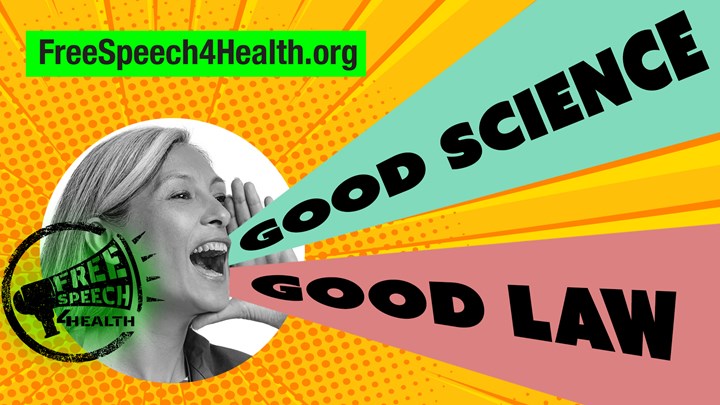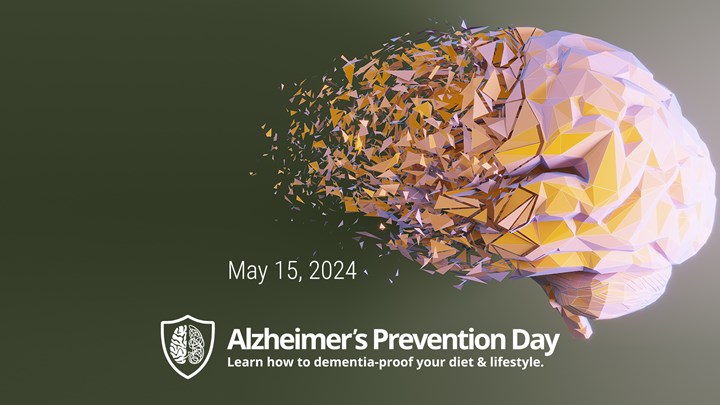Window dressing to avert collapsing confidence in nutrition science?
It seems there’s a new headline everyday about what you should (or shouldn’t) eat. What was once good is now bad and vice-versa! Is it any wonder then that consumer confidence in nutritional science is collapsing? Especially as a large majority of the science is used to promote and bolster the profits of Big Pharma. In an effort to combat these issues, the American Society for Nutrition (ASN) commissioned an independent Advisory Committee to review the available literature with a view to regaining and maintaining public trust in nutrition science. Their recommendations include better management and disclosure of conflicts of interest (COIs), upholding standards for evidence-based conclusions, promoting effective dialogue between the ASN, public and media, development of guidelines for conducting nutrition research plus independent audits of adherence. Last year, Prof John Ioannidis from Stanford University blew the lid off the can of worms that is nutritional science in a major piece in the Journal of the American Medical Association (JAMA) and it seems this review is about trying to undo the ensuing damage. If past performance is anything to go by, this review by ASN will be about window dressing that does nothing to change the culture of bad science. As stated by the American Council on Science and Health, "...the bad habits of this field are so deeply ingrained - and the special interests who make money by peddling dieting books are so dedicated to maintaining the status quo - that reform seems unlikely."
E-cigs as dangerous as smoking!
Many health authorities are actively promoting vaping and the use of e-cigarettes as a healthier alternative to smoking. A new study challenges these views concluding vaping, smoking and using new heated tobacco devices pose the same level of threat to human health. In an interesting turn of events officials in Hong Kong are poised to ban e-cigarettes and vaping products in an effort to reduce the number of young people starting to smoke (although it will still be legal to vape and smoke). This action mirrors the concerns of US authorities over increased use of e-cigarettes among young people, which is correlated with an increased risk of taking up smoking. With the might of the tobacco firms getting in behind vaping in a bid to offset profit loss from cigarettes, popularity is unlikely to fall any time soon. Our view in ANH is that one harm is being replaced by another. It took 30 years to prove a causal relationship between smoking and cancer and we hope it won’t take that long for the consequences of vaping to be realised. As always, the choice (informed!) is yours.
Are carbs being made safe for diabetics in Singapore?
Alchemy Foodtech has developed a new process which it claims lowers the glycaemic index (GI) of carbohydrate foods to allow people to continue to eat refined carbs. ‘5ibrePlusTM’ can be added to a wide variety of products from rice to bread and other processed carbohydrates. Rather than getting to the root of the issue – that of carbohydrate intolerance – this new product may give vulnerable consumers license to continue the behaviours that have tipped them into metabolic dysregulation and type 2 diabetes. Re-education that allows diet and lifestyle modification to return to a metabolically flexible and resilient state is both cheap and effective.
Dirty tactics in 5G fight
5G is coming whether you want it or not. Promising super-fast download speeds to cope with increasing demand on internet services, many are concerned at the potential health hazards of this new, largely untested, network. As scientists, doctors, environmental organisations and ordinary citizens from around the world call for a halt to its deployment, Big Telecom is turning the tables on its opponents by asking citizens to “…tell your lawmakers that you want the 5G future for your community today”. Leveraging people power to force authorities to authorise the blanket roll-out of unproven and potentially unsafe technology is unethical. No-one knows what the effects of 5G will be. If you’d rather not find out take a stand against Big Telecoms’ underhand tactics and please sign the (other!) appeal calling for a halt to the rollout! If you're in the UK you can also sign this newly launched petition calling for an independent enquiry into the safety of 5G.
Brazilian biopiracy
Patents are running out and product pipelines are emptying leaving Big Pharma to, once again, look to exploit the treasures of the natural world. A new study seeks to explore the huge biodiversity of not just the Brazilian flora, but the vast array of endophytes (bacterial and fungal organisms) that live on and in these plants in the search for new compounds to boost profits for Big Pharma and Big Agra. Known as biopiracy or bioprospecting, once a compound has been isolated it can then be used as a model to create a ‘new’ synthetic drug which can then be patented. The resulting new-to-nature molecule doesn’t function in the body in the same way or have the synergistic properties of the natural compound. Not only does bioprospecting risk delicate natural habitats, it threatens to destroy the livelihoods of local people and fail those that relied on the natural compound for medical care, with little or no compensation.
Eating your way to improved mental health
Can eating more veggies and fruit improve your mental health? Researchers publishing in Social Science & Medicine journal suggest not only is it good for our physical health, but it may be good for our mental health too. Their findings showed adding as little as one extra portion of vegetables and fruit to your daily diet could confer the same benefits as going for a walk an extra seven to eight days a month. However, they caution that their results can’t rule out benefits gained from the effects of substituting vegetables and fruit for less healthful foods. Either way, eating more vegetables and fruit is good for the health of our gut-based microbial partners leading the way to improved mental health.








Comments
your voice counts
22 February 2019 at 10:05 am
5G. My family have had personal experience of 5G, about a year ago my son, in his 'infinite wisdom' decided to buy a 5G booster for the house because we had Wifi dead spots. Over the next days and weeks we all began to feel ill, dizzy spells, terrible digestive problems, nose bleeds, pains and weakness in the limbs, hearing problems with noises in the ears. It took us a while to associate these problems with the 5G booster but after about a month is was disconnected and our health quickly improved. We could unplug ours, but when and if it is rolled out, we will all be subjected to this dangerous technology without being able to protect ourselves. This has not been tested for its safety.
22 February 2019 at 4:24 pm
Hi Pauline,
Thanks for sharing your experience of 5G with us. That must've been extremely distressing for the whole family and clearly illustrates why we all be very concerned about this untested and unproven technology, particularly as it won't just be humans but all life that will potentially be affected.
We hope you have all recovered now the source of your ill health has been identified and removed.
Warm Regards
Melissa
Your voice counts
We welcome your comments and are very interested in your point of view, but we ask that you keep them relevant to the article, that they be civil and without commercial links. All comments are moderated prior to being published. We reserve the right to edit or not publish comments that we consider abusive or offensive.
There is extra content here from a third party provider. You will be unable to see this content unless you agree to allow Content Cookies. Cookie Preferences